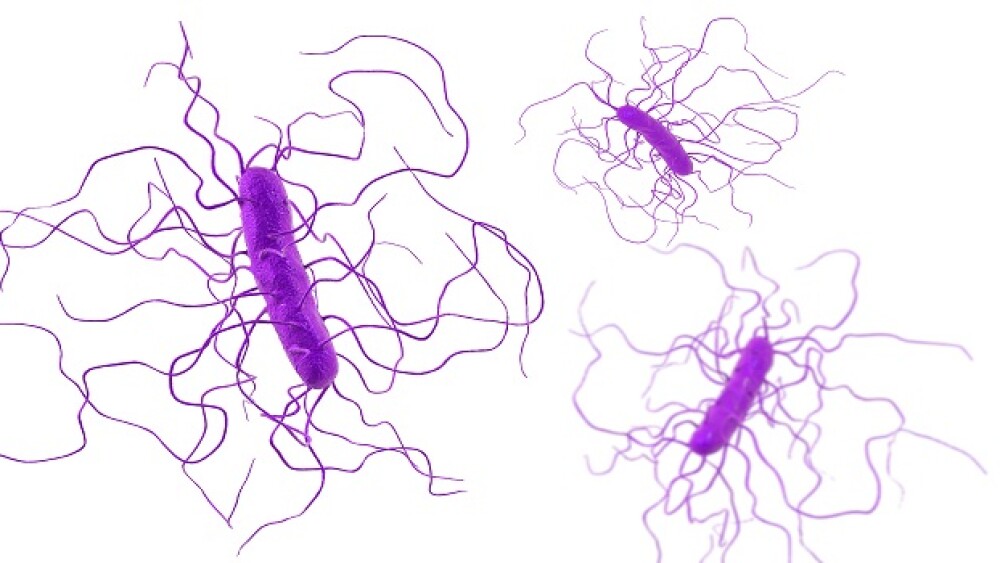Shares of Synthetic Biologics are down more than 14 percent this morning after the company announced that SYN-004 (ribaxamase), the company’s treatment for the Clostridium difficile infection (CDI), lost the Breakthrough Therapy Designation awarded by U.S. Food and Drug Administration last year.
Shares of Rockville, Maryland-based Synthetic Biologics are down more than 14 percent this morning after the company announced that SYN-004 (ribaxamase), the company’s treatment for the Clostridium difficile infection (CDI), lost the Breakthrough Therapy Designation awarded by U.S. Food and Drug Administration last year.
The FDA initially awarded the designation in May 2017 following a Phase IIb trial that showed SYN-004 met its primary endpoint of significantly reducing CDI. Trial results showed that patients who were treated with ribaxamase in the mid-stage trial achieved a 71.4 percent relative risk reduction in CDI rates compared to patients receiving placebo. However, this morning the company announced that during a review conducted by the regulatory agency expressed concern over patient deaths that occurred during the mid-stage trial. As a result of those concerns, Synthetic said it voluntarily withdrew the designation from its ribaxamase program. Synthetic Biologics said the FDA expressed concern over the “numerical imbalance in fatal adverse events observed in the study which could not be fully evaluated due to the limited safety database.” Additionally, the company said the FDA cited the Phase IIb study’s “method of statistical treatment of patients who did not complete the study for any reason” as a second reason for revoking the status.
Synthetic said the FDA reviewed its Breakthrough Therapy Designation as part of the development of the proposed Phase III clinical trial for SYN-004. As it designed the late-stage trial Synthetic said it reached an agreement with the FDA on how it will address those safety concerns during the study. Despite the loss of the designation, which expedites development and review timelines from the FDA, Synthetic said it was committed to the drug and the FDA was also committed to working with the company. The withdrawal of Breakthrough Therapy Designation will not affect interactions between the two parties, Synthetic stressed in its announcement.
CDI, a leading hospital-acquired infection, hits more than 453,000 patients annually and results in approximately 29,000 deaths.
Synthetic revealed the loss of the status this morning as part of its broader announcement regarding the proposed future of the ribaxamase program in CDI. The company highlighted its proposed parameters of the Phase III trial and plugged the information about the loss of the Breakthrough Therapy status in a graph near the end of the release.
The loss of the Breakthrough Therapy Designation will impact Synthetic Biologic’s planned Phase III trial. The company said the clinical study will include separate co-primary endpoints, as well as a key safety point that will address mortality risk. The primary efficacy endpoint of the proposed Phase III clinical trial will be the reduction of the incidence of CDI in the ribaxamase treatment group relative to placebo, the company said.
“Following recent collaborative discussions with the FDA, we have gained clarity on several significant elements of the proposed Phase III clinical program, which we believe provide a path forward to develop ribaxamase, a product which, if approved, may address the serious and unmet health impacts associated with antibiotic-mediated CDI,” Steven A. Shallcross, Synthetic’s interim chief executive officer and chief financial officer said in a statement.





